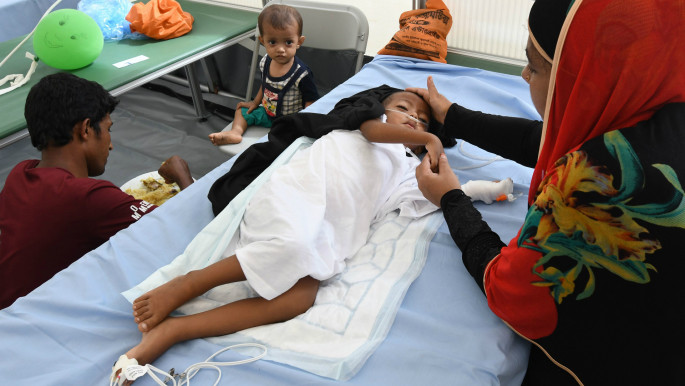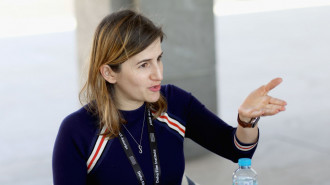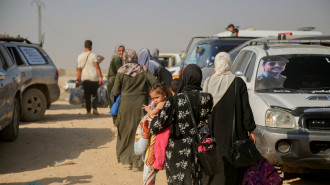New field hospital treats hundreds of Rohingya refugees
But he made it - saved by doctors at a new Red Cross field hospital in Cox's Bazar, the largest clinic of its kind in the overcrowded camps stretching along the border with Myanmar.
"Had he come even an hour later, he would have no chance to survive," Peter Meyer, team leader at the 60-bed hospital the size of two football fields, told AFP.
The infant, Mohammad Hares, is among the more than 600,000 refugees who have poured into Bangladesh since late August to escape ethnic violence in neighbouring Myanmar.
Many arrived sick, starving and nursing bullet wounds and landmine injuries, putting enormous pressure on the already overwhelmed medical clinics operating in camps near the border.
Red Cross doctors at the new hospital have been treating upwards of 200 patients a day, as exhausted Rohingya Muslims continue to cross into Bangladesh by land and sea, many in desperate need of treatment.
"A lot of patients we've treated are weak and tired. There is a lot of exhaustion and dehydration due to long walks," said paediatric nurse Hildur Svenonsdottir at the clinic equipped with an operating theatre, maternity ward and isolation unit.
"There are patients who have not eaten for days," she added.
 |
| Red Cross doctors at the new hospital have been treating upwards of 200 patients a day [AFP] |
The threat of a serious disease outbreak stalks the densely populated camps, where hundreds of thousands of refugees live squeezed together in basic shanties lacking proper toilets.
Doctors fear a water-borne disease like cholera would wreak havoc in such conditions and thousands of patients - especially children - are already suffering from acute diarrhoea.
Meyer said the hospital was planning to send mobile teams deeper into the camps, where bamboo and plastic shanties - perched on hillsides far from relief centres - stretch for miles.
"What we have seen so far is only the tip of the iceberg," he said.
For many Rohingya, the new hospital staffed by foreign doctors and stocked with equipment is their first encounter with modern medicine.
Healthcare is abysmal across the border in Rakhine, Buddhist-majority Myanmar's poorest state, where the Rohingya are denied citizenship and regarded as illegal migrants.
The persecuted Muslim minority have been largely deprived of proper medical care, and doctors say those arriving already show signs of serious malnutrition and other preventable illnesses.
"I have never seen such a hospital in my entire life," Mohammad's mother Halima Khatun told AFP.
"When we were sick, we only saw the local village healers."
Her young boy was saved by urgent surgery from a team of doctors who drained fluid from his lungs - treatment unimaginable in her village back home.
The infant was "recovering fast", Meyer said, adding: "He is a great fighter."







 Follow the Middle East's top stories in English at The New Arab on Google News
Follow the Middle East's top stories in English at The New Arab on Google News


